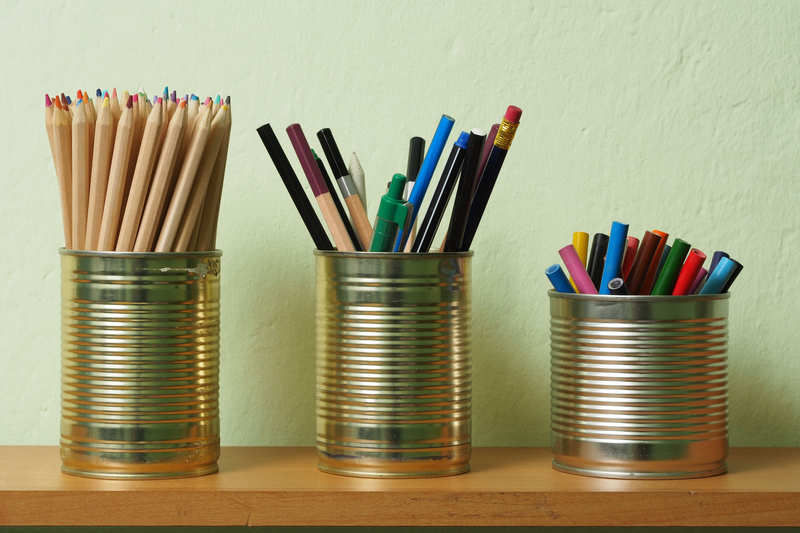Don't Overpay for Bulky Waste Items: Cost-Saving Solutions
Have you ever looked at that old couch, broken washing machine, or pile of branches in your yard and worried about how much it'll cost to get rid of them? Bulky waste disposal often comes with surprising fees, but the good news is you have options. In this article, you'll discover cost-saving solutions for bulky waste items that can help you clean up without breaking the bank. Stop overpaying for bulk waste removal--learn the smart ways to save money today!
Understanding Bulky Waste: What Qualifies?
Before discussing the best ways to save, it's helpful to understand what counts as bulky waste. Bulky waste - often called large item waste or bulk trash - refers to items too big for your normal trash bin. Common examples include:
- Furniture (sofas, armchairs, tables, mattresses, wardrobes)
- Appliances (fridges, washing machines, ovens, microwaves)
- Yard Debris (large branches, tree trunks, fencing, sheds)
- Electronics (TVs, computers, stereo systems - sometimes limited)
- Construction Waste (old carpets, drywall sections, bathtubs)
Municipalities and waste services often charge overpriced fees for collection of these oversized, heavy, or awkwardly shaped items. The good news? With the right knowledge, you can avoid overpaying for bulky waste removal.

Why People Overpay for Bulk Waste Disposal
It's not uncommon for residents and businesses to be surprised by the high cost of large item disposal. Here's why many people end up paying too much:
- Lack of awareness of free or discounted community options
- Assuming the only option is booking a private junk removal service
- Ignoring bulk trash guidelines from the municipality or city council
- Missing neighborhood collection days and paying for off-schedule pickup
- Mixing reusable or recyclable items with landfill waste
With a little research, you can find effective, low-cost solutions for bulky waste.
Top Cost-Saving Solutions for Bulky Waste Disposal
Let's explore the most reliable and affordable ways to manage large waste items--and how you can take action today!
1. Check for Municipal Bulk Waste Collection
Your city or town likely offers a bulky item pickup service, either free of charge or for a nominal fee. Inquire with your local council or sanitation department for:
- Scheduled bulk trash collection days (often a few times each year)
- On-demand collection requests (sometimes a set annual quota per household)
- Drop-off events for appliances, electronics, or hazardous bulky items
Tip: Placing items out only on designated days avoids fines and guarantees you don't overpay a private hauler.
2. Donate Usable Items: Save and Give Back
Don't toss items still in functional condition. Many charities and thrift stores accept gently used bulky furniture, appliances, and home goods. Benefits include:
- Your items are reused instead of dumped in a landfill
- You avoid disposal fees
- You might qualify for a tax deduction
- You help families in need
*Tip: Call ahead to ensure the organization accepts your type of bulky item and can arrange pickup.*
3. Sell or Give Away Large Items Online
Not all unwanted items belong in the dump! Use online marketplaces such as Facebook Marketplace, Craigslist, Freecycle, OfferUp or neighborhood groups to sell or gift:
- Sofas, recliners, dining sets
- Working appliances
- Outdoor furniture
- Yard tools, bikes, play sets
Often, buyers or takers will pickup the item from your curb, saving you time and disposal costs.
4. Use Recycling Centers and Specialized Drop-Offs
Many items considered bulky waste qualify for recycling. Electronics, mattresses, white goods (appliances), and scrap metal can be brought to recycling sites. In many cases, this is free or costs far less than landfill dumping.
Types of recycling centers to look for:
- E-waste facilities for TVs, computers, and electronics
- Mattress recycling programs
- Appliance recycling by manufacturers or energy companies
- Construction and demolition waste drop-offs
Not sure what's accepted? A quick online search for "bulk waste recycling near me" can point you in the right direction.
5. Arrange a Community or Neighborhood Cleanup
Some towns organize annual "amnesty" days or block-wide bulky waste cleanups. This spreads out the cost and makes disposal more affordable for everyone. Ask your homeowners' association or neighborhood council about organizing a group collection.
Advantages include:
- Bulk discounts with waste haulers
- Less illegal dumping in alleys or vacant lots
- Improved curb appeal for the entire community
6. DIY Hauling to Local Transfer Stations
If you have access to a pickup truck or trailer, you can save money by bringing your bulky waste directly to the local landfill, transfer station, or recycling center.
- Check rates: Most charge by volume or weight, not per item.
- Combine trips with neighbors to split costs and fuel.
- Some locations offer a certain number of free drop-offs per year for residents.
Just be aware of potential restrictions (e.g., proof of residency, banned items, limits on construction debris).
7. Compare Junk Removal Companies Carefully
If you must use a professional junk hauling service, don't simply pick the first one you find. To avoid overpaying for bulk waste pickup:
- Get quotes from at least three different providers.
- Ask if rates are based on volume, weight, or per item.
- Request a fixed price upfront--not a surprise bill after pick-up.
- Inquire about discounts for seniors, veterans, or first-time customers.
Look for companies that separate recyclables and donate where possible, reducing your environmental impact.
What NOT to Do When Disposing of Bulky Waste
In the quest to save money, avoid these common mistakes:
- Illegal dumping: Tossing items in alleyways, empty lots, or unauthorized locations can result in heavy fines and penalties.
- Ignoring local rules: Some cities require advance scheduling or proof of residency, and improper disposal could mean extra charges.
- Mixing hazardous waste: Paint, chemicals, and refrigerants have separate procedures and can't go with general bulk waste.
- Piling up banned items: Tires, old TVs, batteries, and large electronics are often banned from municipal bulk pickups--always check guidelines.
Tips for Minimizing Bulky Waste in the First Place
One of the best ways to save money on bulky waste removal is to generate less of it from the start. Here are some smart habits:
- Buy quality, durable goods less likely to break or go out of style quickly
- Repair or upcycle furniture and appliances instead of discarding them
- Rent or borrow seldom-used items (tools, ladders, yard equipment)
- Choose modular furniture that can be added to or reconfigured
- Dispose of packaging and boxes gradually through regular recycling
Plan Ahead When Making Big Purchases
When upgrading your home or office, always ask the retailer about removal and recycling of old items. Many companies will take your old fridge, washing machine, or mattress when they deliver new ones--sometimes for free or a small fee.
Environmental Reasons to Use These Bulk Waste Solutions
Using eco-friendly bulky waste disposal options isn't just about saving money. Diverting usable goods and recyclables away from landfills has major environmental benefits:
- Reduces illegal dumping
- Lowers landfill use and methane emissions
- Promotes re-use of valuable materials
- Benefits local charities and families in need
- Increases recycling and circular economy efforts
Frequently Asked Questions About Bulky Waste and Cost-Saving Disposal
Are there free options for disposing of bulky waste?
Yes. Many cities offer annual or quarterly free bulk collection days. Community cleanups, donations, and some recycling programs allow for free disposal of certain large items - always check your local regulations.
How can I find out what my city offers for bulk trash pickup?
Visit your city or county's website, search for "bulky waste collection" or "large item disposal," or call your local public works or sanitation department.
What's the cheapest way to get rid of a large sofa or broken appliance?
First, consider donation or resale if the item still works. If not, check for recycling centers, municipal pickup schedules, or take it to the local transfer station. Only use junk haulers if you can't handle the item yourself, and always get multiple quotes.
Can I donate mattresses or old electronics?
Some charities and recycling programs accept mattresses and e-waste, while others do not due to health and safety laws. Call ahead for guidance. Specialty recycling events are increasingly common in urban areas.
Will my waste company charge more if I put out too much bulky waste?
Almost all waste companies and municipalities limit the size or number of bulky items per collection. Exceeding those limits can result in hefty surcharges or refusal to collect your items.

Summary: Don't Overpay for Bulky Waste Items--Smart Ways to Save
To avoid overpaying for bulky waste items, remember:
- Explore all available municipal and community programs first: scheduled pickups, special events, recycling centers, and group cleanups.
- Donate or sell large items when possible--many organizations will pick up for free.
- Compare prices before hiring junk removal companies, always ask for fixed rates, and avoid surprise charges.
- Follow local disposal rules to dodge fines and waste service surcharges.
- Minimize bulk waste through upcycling, repairs, and smart buying.
By implementing these cost-saving bulky waste solutions, you'll reduce your environmental impact, keep your community cleaner, and save significant money on large item disposal. Next time you tackle that garage cleanout or home upgrade, you'll be ready to handle bulky waste without breaking the bank!
Key Takeaways: Save on Bulky Waste Disposal
- Start with free or low-fee community options
- Donate, sell, or recycle before dumping
- Team up with neighbors for group savings
- Get quotes and avoid hidden fees
- Stay informed about local rules
Stop overpaying for bulky waste items. Use these budget-friendly, eco-conscious tips to clear out the clutter--and keep more cash in your pocket!